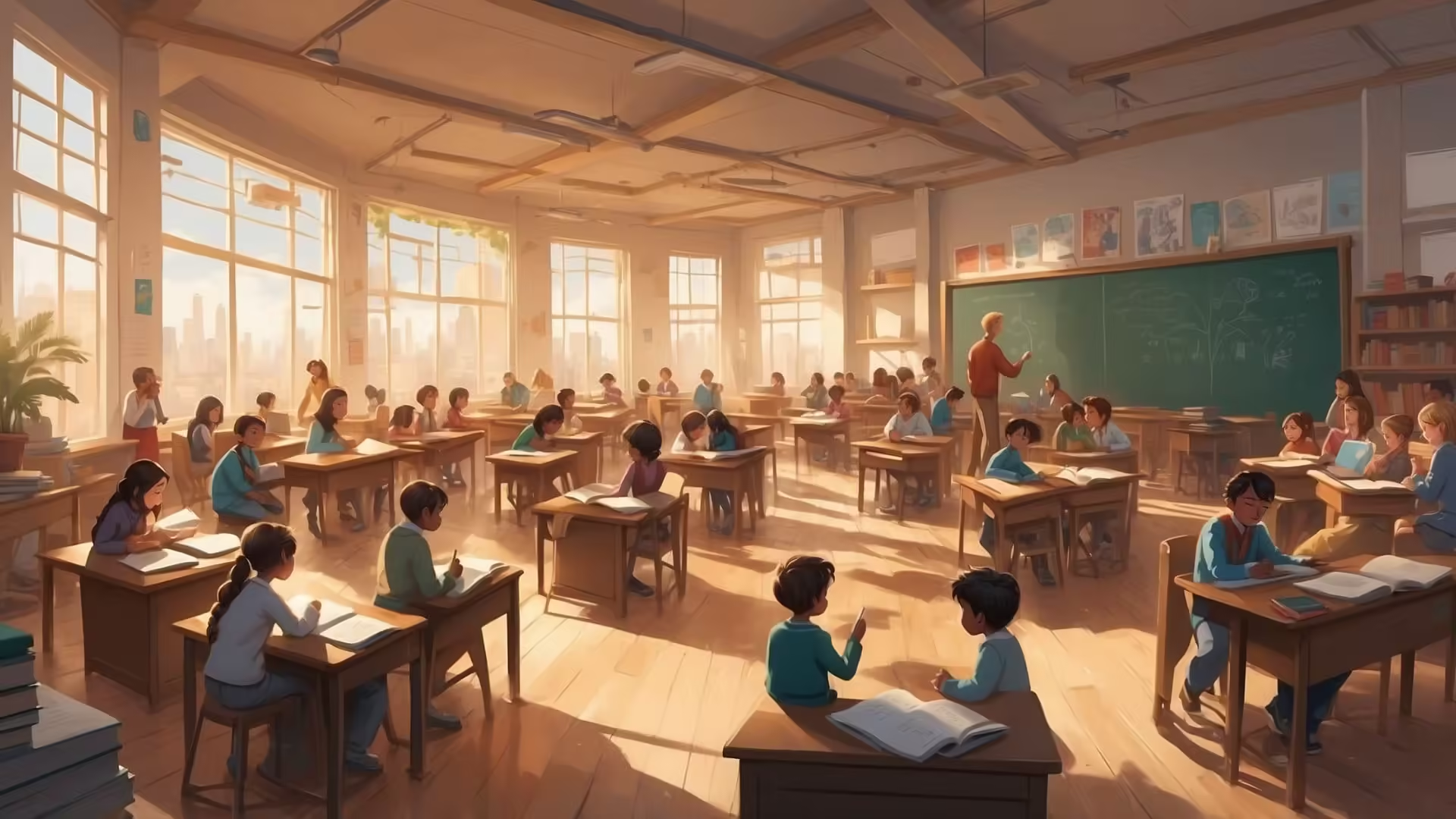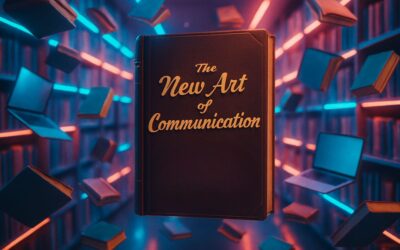- The Gist
- What is the Purpose of Education?
- Developing Critical Thinking and Problem-Solving Skills
- Fostering Personal Growth and Self-Understanding
- Preparing for Careers and Economic Stability
- Promoting Social and Cultural Awareness
- Building Lifelong Learners
- The Role of Education in Social Change
- Nurturing Emotional Intelligence and Interpersonal Skills
- Education as a Foundation for a Meaningful Life
- Let’s Talk
- Let’s Learn Vocabulary in Context
The Gist
What is the real purpose of education? While it’s easy to think of education as a path to getting a job or a means to acquire knowledge, its purpose goes far beyond that. Education shapes how we think, question, and understand the world. It builds critical skills, promotes personal growth, and opens our minds to new perspectives. From fostering curiosity to nurturing empathy, education serves as the foundation for lifelong learning and personal development. That’s just the gist of what this post is about. If you want to dig deeper into the topic, some discussions about it, and learn some key vocabulary from its context, read the post.
What is the Purpose of Education?
Education has been a fundamental part of human society for centuries, shaping the way individuals think, act, and engage with the world. But what is the purpose of education, and why does it hold such a central role in our lives? Is it just about preparing individuals for careers, or does it have a more profound impact on society as a whole? Education, as it turns out, serves many purposes—each contributing to both personal growth and the betterment of society.
Developing Critical Thinking and Problem-Solving Skills
One of the primary purposes of education is to teach individuals how to think critically. This means not just accepting information as it is presented but learning to analyze, question, and interpret it. Critical thinking is essential for problem-solving, allowing individuals to evaluate situations and make informed decisions. In today’s world, where information is readily available but not always accurate, the ability to think critically is invaluable. Education encourages individuals to become curious learners, questioning the world around them and developing a deeper understanding of various subjects.
Critical thinking isn’t just a skill for the classroom; it’s a life skill that can be applied in everything from navigating career challenges to making informed decisions as citizens. By encouraging students to think independently and evaluate information, education empowers them to approach complex situations with a thoughtful, analytical mindset.
Fostering Personal Growth and Self-Understanding
Education is more than just acquiring knowledge; it’s also about self-discovery. Through education, individuals learn about themselves—their interests, strengths, and even their weaknesses. This process of self-understanding helps individuals make choices that align with their passions and values. Personal growth is a key aspect of education, allowing people to gain confidence in their abilities and develop a sense of purpose.
Personal growth in education can also foster resilience, as students face challenges, make mistakes, and learn to overcome obstacles. These experiences teach valuable life lessons that go beyond academics, shaping individuals who are adaptable and capable of facing real-world challenges.
Preparing for Careers and Economic Stability
One of the more practical purposes of education is preparing individuals for the workforce. Schools and universities equip students with the knowledge and skills needed to pursue various career paths, contributing to economic stability. However, the value of education in career preparation isn’t just about obtaining job-specific skills; it’s also about building a strong foundation of general knowledge, communication skills, and the ability to adapt to new situations. In a rapidly changing job market, the ability to learn and grow is more valuable than ever.
Education also plays a significant role in social mobility, offering opportunities for individuals to improve their economic status and contribute meaningfully to society. This preparation isn’t limited to technical skills; it includes building a mindset of continuous learning, which is essential for adapting to a dynamic economy.
Promoting Social and Cultural Awareness
Education helps individuals understand the diverse cultures, histories, and perspectives that shape our world. By learning about different cultures and social issues, students gain empathy and respect for others. This cultural awareness is crucial in an increasingly globalized world where individuals from various backgrounds work, communicate, and interact daily. Through education, students learn to appreciate diversity and understand the importance of inclusivity, helping to create a more harmonious society.
Social awareness goes hand-in-hand with moral and ethical education. Many schools and educational systems incorporate lessons on ethics, teaching students about fairness, justice, and integrity. By nurturing a sense of social responsibility, education encourages individuals to contribute positively to their communities and strive for a just society.
Building Lifelong Learners
A significant purpose of education is to inspire a love for learning that lasts a lifetime. Rather than viewing education as something that ends with graduation, students are encouraged to see learning as an ongoing journey. Lifelong learners are those who continue to seek knowledge, adapt to new situations, and stay curious long after their formal education has ended. This mindset of lifelong learning is essential in a world where technology and knowledge evolve rapidly.
Lifelong learners are not just more adaptable in their careers but are often more fulfilled in their personal lives. Education instills the curiosity and resilience needed to pursue interests, explore new skills, and engage with the world with an open mind.
The Role of Education in Social Change
Education has long been a catalyst for social change, empowering individuals to challenge injustices, question social norms, and strive for a better future. By educating individuals, society can promote equality, reduce discrimination, and create a foundation for positive change. Educated individuals are more likely to advocate for their rights and work toward creating a fairer, more just world.
In many societies, education has played a crucial role in movements for social justice, human rights, and environmental awareness. By promoting critical thinking and awareness, education gives people the tools to address the challenges facing society and find ways to make meaningful contributions.
Nurturing Emotional Intelligence and Interpersonal Skills
Education is also about building emotional intelligence—the ability to understand and manage one’s own emotions and empathize with others. Through interactions with teachers, classmates, and mentors, students develop interpersonal skills that are essential in both personal and professional life. Emotional intelligence helps individuals build healthy relationships, resolve conflicts, and communicate effectively, skills that are as important as academic knowledge.
In a world where teamwork and collaboration are increasingly important, education helps individuals develop these “soft skills” that are crucial for success. The classroom becomes a space where students learn to interact, work together, and respect each other’s perspectives.
Education as a Foundation for a Meaningful Life
The purpose of education is multifaceted, encompassing personal growth, career preparation, social awareness, and lifelong learning. Education shapes individuals into well-rounded, thoughtful citizens who are prepared to navigate the complexities of the world with empathy, resilience, and a commitment to personal and social betterment. As we continue to evolve in a globalized, rapidly changing world, the role of education remains essential—not just as a means to an end but as a journey that enriches lives and empowers people to create positive change.
Let’s Talk
Let’s chat about the real purpose of education. It’s funny, isn’t it? So many of us go through years of school without ever stopping to wonder why we’re actually doing it. Sure, there’s that standard answer: “It’ll help you get a job.” And yes, that’s part of it. But education is so much bigger than just a ticket to employment. It’s almost like a toolbox that keeps expanding, helping us solve problems, understand ourselves, and connect with the world in new ways.
Think about it: some of the best moments in education aren’t about the facts and figures. They’re those little moments of “Aha!” when something clicks, or when a book or a discussion suddenly changes the way you see things. That’s education working its magic, pushing us beyond just knowing stuff and into the realm of actually understanding it. Have you ever learned something that just changed your perspective completely? Maybe it was something that made you see a person or a situation in a whole new light?
Then there’s the social side. So much of education is about learning to work with people—sometimes even people we don’t necessarily like. Group projects might have felt like a nightmare in school, but in the real world, collaboration is everywhere. Whether we’re working in an office, volunteering, or just navigating our relationships, those “teamwork” lessons turn out to be surprisingly relevant.
And let’s not forget curiosity. Good education teaches us to ask questions, not just answer them. If you’re the kind of person who loves finding out why things work the way they do, you’re already practicing one of the best things education can teach: the art of being curious. When we keep that curiosity alive, we never stop learning, and life stays interesting. I mean, how dull would it be if we stopped exploring, stopped asking questions, and just accepted everything at face value?
Here’s a thought: if you could pick one lesson from school that still matters to you today, what would it be? Is it a specific skill, like writing or critical thinking? Or maybe a piece of wisdom from a favorite teacher that stuck with you? Education shapes us in so many ways, often in subtle ones we don’t even notice until much later.
At its core, education isn’t just about shaping the world around us; it’s also about shaping who we are. It’s like the foundation for everything else we build in life, from our careers to our values. And when we look at it that way, education becomes more than just something we did as kids—it’s something we carry with us every day.
Let’s Learn Vocabulary in Context
Let’s take a closer look at some key words that bring the purpose of education to life. First up, critical thinking. Critical thinking is all about analyzing information and making informed decisions, rather than just taking things at face value. If someone tells you, “Think critically about the news you read,” they mean don’t believe everything outright—evaluate it carefully first.
Curiosity is that drive to know more, to ask “why” and “how.” If you have a curiosity about history, you might find yourself looking up random facts about ancient civilizations just for fun. Curiosity keeps us exploring and learning throughout life.
Perspective refers to the way someone views or understands something. In education, learning about different perspectives can mean studying various viewpoints on a historical event, understanding cultural differences, or even seeing a situation through a friend’s eyes. Expanding our perspective helps us appreciate the diversity of human experience.
Self-discovery is the process of learning more about who we are, including our strengths, interests, and values. A lot of what we learn in school contributes to this, as we start to notice what subjects or activities resonate with us.
Empathy means understanding and sharing the feelings of others. In education, empathy is built when we learn about different people’s experiences and struggles. This skill helps us connect with others and approach relationships with kindness.
Adaptability is the ability to adjust to new situations. In a world where technology and society are constantly evolving, adaptability is crucial. In practical terms, it’s like switching from in-person work to remote work without too much hassle—it’s all about being flexible.
Social mobility refers to the ability to move up or improve one’s social and economic status, often through education. Education gives people skills and qualifications that can open doors to better job opportunities, helping them achieve goals and build a better future.
Resilience is about bouncing back from challenges. Education often teaches resilience indirectly, as students learn to handle deadlines, tackle tough assignments, and overcome setbacks. Resilience is a valuable life skill, helping us persevere through difficulties.
Emotional intelligence is the ability to understand and manage our own emotions and empathize with others. Schools and teachers help build this skill by teaching us to communicate well, work in teams, and navigate conflicts.
Lastly, lifelong learning is the concept of continually learning new things throughout our lives, beyond just formal education. When you pick up a new hobby, read a book, or attend a workshop, you’re practicing lifelong learning. It keeps the mind active and helps us grow in unexpected ways.
So here’s a question for you: which of these words do you think best describes what you got out of your education? And can you see how these skills or values still play a role in your everyday life? It’s fascinating to think about how the words we use to describe education can actually tell us so much about what we find most valuable in it.










0 Comments